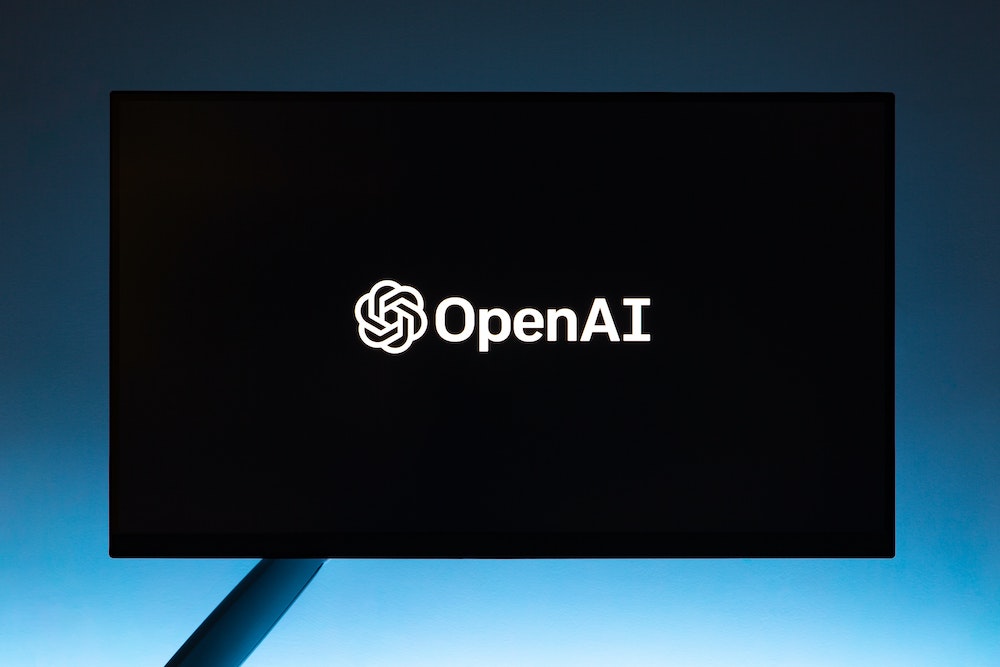Chat GPT for Lawyers: Revolutionizing the Legal Industry with AI
Last updated: April, 12, 2023
Learn how chat GPT for lawyers can automate routine tasks, improve accuracy, and enhance client service in the legal industry.
As technology continues to advance, so does the legal industry. One technological innovation that has made significant strides in recent years is artificial intelligence (AI), particularly in the form of chatbots. One such chatbot is Chat GPT, which is specifically designed to assist lawyers and law firms in their daily operations.
In this article, we will explore the benefits of Chat GPT for lawyers and how it can revolutionize the legal industry. Additionally, read here for Chat GPT for Legal Documents.
What is Chat GPT?
Chat GPT is an AI-powered chatbot that is specifically designed for the legal industry. It is based on the GPT-3.5 architecture and has been trained on a vast amount of legal data. As a result, Chat GPT can provide lawyers with an unprecedented level of assistance.
Chat GPT is designed to help lawyers with a wide range of tasks, from legal research and drafting documents to scheduling appointments and managing client relationships. It can understand natural language queries and provide intelligent responses, making it an incredibly valuable tool for lawyers.
Benefits of Chat GPT for Lawyers
Chat GPT can provide lawyers with a wide range of benefits, including:
Increased Efficiency
Chat GPT can help lawyers to work more efficiently by automating many of their routine tasks. This can free up time for lawyers to focus on more complex and high-value tasks, such as providing legal advice to clients.
Improved Accuracy
Chat GPT has been trained on a vast amount of legal data, which means that it can provide lawyers with highly accurate and relevant information. This can help lawyers to make more informed decisions and provide better advice to their clients.
Enhanced Productivity
By automating routine tasks, Chat GPT can help lawyers to be more productive. This can help law firms to increase their output and take on more clients without increasing their staffing levels.
Better Client Service
Chat GPT can help lawyers to provide better service to their clients by providing faster and more accurate responses to their queries. This can help to build stronger relationships with clients and improve client satisfaction.
Cost Savings
By automating routine tasks, Chat GPT can help law firms to save money on staffing costs. This can help to make legal services more affordable for clients and improve access to justice.

Chat GPT is designed to help lawyers with a wide range of tasks, from legal research and drafting documents to scheduling appointments and managing client relationships.
Uses of Chat GPT for Lawyers
Chat GPT can be used in a wide range of applications within the legal industry, including:
Legal Research
Chat GPT can help lawyers to conduct legal research more efficiently by providing them with relevant cases and statutes. It can also help to identify any gaps in their research, ensuring that they have all the information they need to make informed decisions.
Drafting Documents
Chat GPT can help lawyers to draft legal documents, such as contracts and pleadings. It can provide suggestions for clauses and ensure that the document is formatted correctly.
Scheduling Appointments
Chat GPT can help lawyers to schedule appointments with clients and other parties. It can also send reminders to both parties to ensure that appointments are not missed.
Managing Client Relationships
Chat GPT can help lawyers to manage their client relationships more effectively. It can provide information about client preferences and help to ensure that all communication with clients is consistent and professional.
Predictive Analytics
Chat GPT can help lawyers to make predictions about the outcome of legal cases based on historical data. This can help to inform legal strategy and improve the chances of success in court.
How to Implement Chat GPT in Your Law Firm
Determine Your Needs
The first step is to determine which tasks you want Chat GPT to assist with. This will depend on the specific needs of your law firm.
Choose a Chat GPT Provider
After determining your needs, the next step is to choose a Chat GPT provider. There are several providers available in the market, so it’s essential to do your research and select the one that best suits your needs.
When choosing a provider, consider factors such as their experience in the legal industry, the quality of their chatbot, and their pricing structure. It’s also important to ensure that the provider has robust data security measures in place to protect your clients’ confidential information.
Train the Chatbot
Once you’ve selected a provider, the next step is to train the chatbot. This involves providing the chatbot with access to your law firm’s data, such as case law, client information, and other relevant documents.
During the training process, it’s important to provide the chatbot with as much data as possible to ensure that it can provide accurate and relevant information. You may also need to fine-tune the chatbot’s responses based on your law firm’s specific requirements.
Test the Chatbot
Before rolling out Chat GPT to your law firm, it’s essential to test it thoroughly. This involves testing the chatbot’s responses to various scenarios and ensuring that it can handle different types of queries.
Testing also helps to identify any potential issues with the chatbot and allows you to make any necessary adjustments before implementing it in your law firm.
Roll out Chat GPT for Lawyers
Once you’ve trained and tested Chat GPT, it’s time to roll it out in your law firm. This involves integrating the chatbot into your existing systems and processes.
It’s important to provide training to your staff on how to use Chat GPT effectively. This includes how to interact with the chatbot and how to interpret its responses.
Will Chat GPT Replace Lawyers?
There has been a lot of buzz surrounding the potential for AI, like ChatGPT, to replace lawyers in the future. While it’s true that AI has made great strides in recent years and can now perform some tasks previously reserved for humans, the answer to this question is not a simple one. While AI may be able to assist lawyers with research and analysis tasks, it is unlikely that AI will be able to fully replace lawyers anytime soon. This is because the legal profession involves a great deal of human interaction, interpretation, and judgment that is difficult for AI to replicate. In addition, legal ethics and rules of professional conduct require human lawyers to make certain decisions and maintain the duty of loyalty and confidentiality to their clients, which AI would not be able to fulfill in the same way.
Despite these limitations, it is likely that AI will play an increasingly important role in the legal profession in the future. AI has the potential to improve the speed and accuracy of legal research and analysis, freeing up lawyers to focus on more complex tasks that require human judgment and interaction. Additionally, AI could be used to automate routine tasks such as contract review or document drafting, making legal services more accessible and affordable to those who may not have been able to afford them in the past. However, it’s important to remember that AI is a tool, not a replacement for human lawyers, and should be used in conjunction with human expertise to provide the best possible legal services to clients.
Artificial Intelligence (AI) has transformed various industries, including the legal industry, and the Chat GPT is a chatbot designed to assist lawyers and law firms in their daily operations. Chat GPT is based on the GPT-3.5 architecture and has been trained on a vast amount of legal data. The benefits of Chat GPT for lawyers are numerous, including increased efficiency, improved accuracy, enhanced productivity, better client service, and cost savings. Chat GPT can be used for legal research, drafting documents, scheduling appointments, managing client relationships, and predictive analytics.
Implementing Chat GPT in a law firm involves determining needs, choosing a Chat GPT provider, training the chatbot, testing the chatbot, and rolling out Chat GPT for lawyers. The training process is critical as it involves providing the chatbot with access to your law firm’s data, such as case law, client information, and other relevant documents. During the training process, it is essential to provide the chatbot with as much data as possible to ensure that it can provide accurate and relevant information.
Chat GPT is designed to help lawyers with a wide range of tasks, but it cannot replace lawyers. Chat GPT is a tool that can help lawyers to work more efficiently, accurately, productively, and provide better service to clients. However, the legal industry involves human interactions, and AI cannot replace human judgment, empathy, and creativity. Lawyers must still interpret the results provided by Chat GPT and apply their expertise to make informed decisions for their clients. Therefore, the legal industry needs to embrace the opportunities provided by AI like Chat GPT while maintaining the human touch that makes the legal profession unique.
Ethical Implications of Chat GPT for Lawyers
Another potential concern is the ethical implications of using AI in the legal industry. The ethical concerns include data privacy, bias, accountability, and transparency. AI chatbots like Chat GPT operate by analyzing vast amounts of data, and this data can be confidential and sensitive. Law firms must ensure that data privacy is protected, and the chatbots comply with relevant data protection regulations. Bias is another ethical concern. Chatbots are only as unbiased as the data they are trained on. Law firms must ensure that the data used to train the chatbot is representative and unbiased. Accountability and transparency are also ethical concerns. Law firms must be transparent about the use of AI in their operations, and the chatbots must be accountable for their actions.
Chat GPT is a powerful tool that can revolutionize the legal industry. It can help lawyers to work more efficiently, improve accuracy, enhance productivity, provide better client service, and save costs. By automating routine tasks, Chat GPT can free up time for lawyers to focus on high-value tasks and improve access to justice.
Implementing Chat GPT in your law firm is a straightforward process that involves determining your needs, choosing a provider, training the chatbot, testing it, and rolling it out. With the right provider and proper training, Chat GPT can be a game-changer for your law firm.
*** Brandalytics is a digital marketing agency with a proven track record in the legal industry. Read our case studies to learn about our work with law firms. We encourage you to schedule a free consultation for any of your law firm marketing needs.***
- Chat GPT for Flights: Revolutionizing Air Travel with AI - July 25, 2023
- Best Tattoo Artists in Fort Worth: Discover Fort Worth’s Finest - June 28, 2023
- Chat GPT for Mac: Unlocking New Conversations with AI - June 19, 2023


